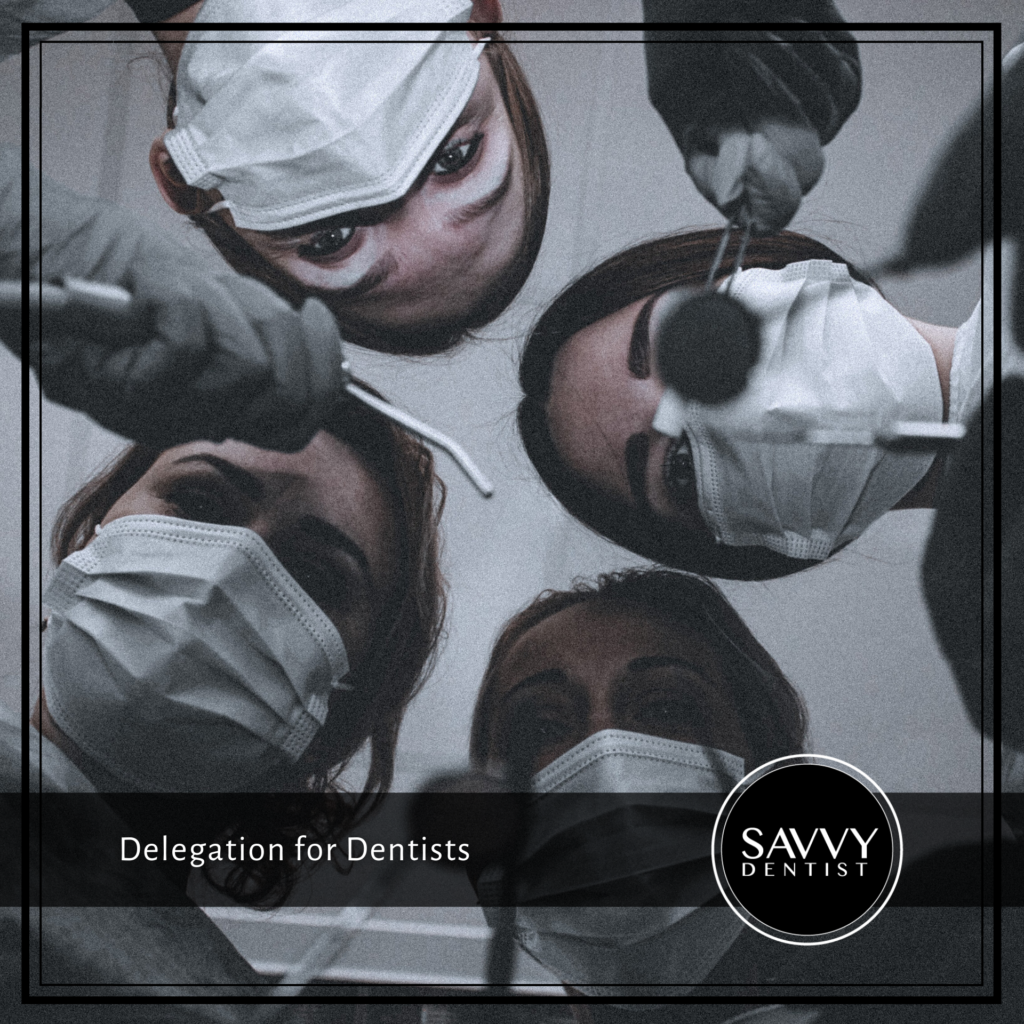As business owners, we understand the importance of delegation and freeing up our time through the effective use of our team.
The challenge is that most dentists are type-A, perfectionist types who don’t delegate, they abdicate.
In order to be a good delegator, start by:
1. Make a list of all the things you’re currently doing – how do you spend your time? What projects are on your plate?
2. Allocate a percentage of your time to each of these tasks. A rough estimate is fine, but the idea is to identify the relative weight of each of your responsibilities.
From here, it’s a matter of deciding which things you want to do more of, less of, or let go of altogether. The things you want to do less of or stop doing, you have three options; automate, delegate, or eliminate. Now, automation and elimination are topics in and of themselves that we have other resources devoted to.
But in terms of delegation, what most people do is they ask a person “hey, can you please go and do this?”
This can cause issues when we don’t take the time to show them how to do this.
Take a moment to stop and show them how to complete the task in the way that you would like the task done, as well as getting their input to see if they have anything they’d add that you’ve missed, any questions they may have.
And remember, an important part of delegation is remembering to check in.
It’s a far better use of your time to check in and see how the progress is going, than to wait and find out the task hasn’t been done properly. This will erode your faith in delegation and lead to that “well it won’t get done properly so I have to do it myself” mindset.
A great idea is to also make sure the person who you’ve delegated to/trained also has the ability to delegate and train others. This removes key person risk, which you’ll be grateful for when the time comes.
I really encourage you to start delegating to your team to create a bit more leverage and free up more time. It’s tough to start, but so worth it!



